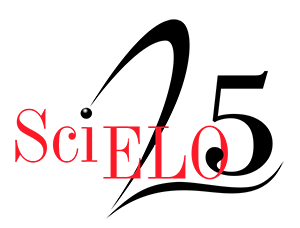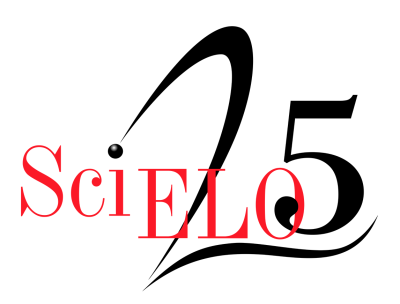LIVESTREAM
09:00-18:00 BRT/UTC-3
(for registered users only)

09:00-18:00 BRT/UTC-3
(for registered users only)

25-29 September, 2023
São Paulo, Brazil
The SciELO Program will celebrate its 25th anniversary of regular operation in the week of 25-29 of September 2023, as an open science research communication infrastructure program.
The 2023 SciELO Network Meeting will be held on September 25 and 26, in the first two days of the SciELO 25 Years Week. Held every five years, the meeting will inform and analyze the state of advancement of the national collections of the SciELO Network, the methodological and technological updates of the SciELO Publication Model and the presentation and approval of the final version of the Priority Lines of Action for the next 5 years (2024-2028) with a focus on aligning journals, collections and the SciELO Program with open science practices, discussed prior to the meeting.
Registration
Welcome [VIDEO]
Presentations of up to 10 minutes by the National Coordinations [VIDEO]
Coffee break and interactions
Presentations of up to 10 minutes by the National Coordinations [VIDEO]
Lunch break and interactions
SciELO Network Coordinators Panel (restricted to coordinators)
Towards open science: in search of visibility and impact – Part 1 (open to the public) [VIDEO]
Coffee break and interactions
Towards open science: in search of visibility and impact – Part 2 (open to the public) [VIDEO]
SciELO Publishing Model [VIDEO]
Coffee break and interactions
Visibility of SciELO journals [VIDEO]
Lunch break and interactions
Open Science – What to say to the SciELO Program? [VIDEO]
Coffee break and interactions
Closing of the Meeting [VIDEO]
Conference opening
We so loved Open Access [VIDEO]
Opening
National authorities [VIDEO]
Coffee break and interactions
Opening
International authorities [VIDEO]
Lunch break and interactions
Dialogues
Diversity, Equity, and Inclusion in Open Science Program [VIDEO]
Those of us who do
Open Access Plataforms – Metadata [VIDEO]
Coffee break and interactions
Books
Academic books on open science [VIDEO]
Those of us who do
Open Access Plataforms [VIDEO]
Coffee break and interactions
Dialogues
The Reason for Metrics [VIDEO]
Standards, methods, techniques, practices
Quality in the communication of Open Science research [VIDEO]
Lunch break and interactions
Dialogues
Data, how I want you data [VIDEO]
Coffee break and interactions
Those of us who do
Open Access Plataforms [VIDEO]
Multilingualism
Universalization of research communication [VIDEO]
Dialogues
Preprints and Open Peer review [VIDEO]
Coffee break and interactions
Standards, methods, techniques, practices
Interoperability and Accessibility [VIDEO]
Equity in Open Access
Equity in Open Science [VIDEO]
Lunch break and interactions
Poll with event attendees
Three questions for the participants, compiled and presented to all
Visions of the Future: SciELO 25+
Roundtable 1 [VIDEO]
Perspectives for open science
What can significantly change – and in which direction – in the short-medium term (up to 5 years) and in the medium-long term (above 5 years)
Guiding Questions
• What advances should occur in themes such as open access; open data; open peer review; and citizen science?
• How should equity, diversity and inclusion indicators evolve?
Coffee break and interactions
Visions of the Future: SciELO 25+
Roundtable 2 [VIDEO]
Science of Science
What are the research agendas for science with broader impact?
Guiding Questions
• Based on the antecedents and perspectives of initiatives such as DORA, COARA, FOLEC, and others in the same vein, how measures of excellence in research are designed and which lines of indicators tend to be well accepted;
• Can important advances be expected in measuring the societal, economic and environmental impacts of research? Which indicators should prevail?
Event summary
What’s new and what are the expectations for the next 25 years? [VIDEO]
SciELO Network
The Future is Open – new challenges for the SciELO Network [VIDEO]
* Discount valid only for the 5 days of the event, for SciELO Network journals and publishers. Write to scielo25@scielo.org and ask for the discount.
** Valid only for September 25th and 26th.
*** Valid only for September 27th, 28th and 29th.
For registrations of more than 5 people and discount coupons for indexed journals and publishers, or members of SciELO Collections coordinations, please contact scielo25@scielo.org (valid only for five-days tickets).
Alameda Santos, 1123
Jardim Paulista, São Paulo – SP
01419-001
For flight and accommodation recommendations with discount prices, please check: https://suaviagem.app/2GjhQz-scielo-25



















































It is expected that all participants in events promoted by SciELO follow our Code of Conduct.